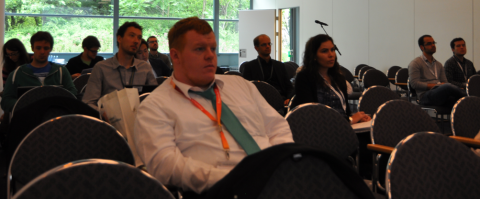Successful Workshop on "Chemical Analysis in Bioenergy Conversion Processes" held in Hamburg

At this years 22nd European Biomass Conference and Exhibition in Hamburg a further gas analysis workshop was held. This years theme was "Chemical Analysis in Bioenergy Conversion Processes". In this parallel event once more we had the ability to discuss openly the problems, needs and challenges that process gas analysis offers. The workshop, taking place for the fourth consecutive time at the EUBCE, brought together experts from academia, applied research and industry for sharing information, results, knowledge and associated experiences from the important area of supporting analytical tools for bioenergy conversion processes. The meeting started by stating general analytical needs in demonstration processes closely related to industrial implementation. Following that, general aspects of gas analysis were presented and ways for more intense collaboration in the future development of analytical tools and especially in their validation against references and standards or benchmarks were intensively discussed. The outcomes of some collaborative measurements of two or more partners who brought different analytical methods for the same analytes to operation were shown. Always crucial is seen the funding for this supporting kinds of activities which take place most often in the shadow of the larger projects. Another section of the workshop dealt with tools that support the analytical methods itself such as test gas generation for calibration and validation of on-line methods. Other methods were for instance tools for diluting the sampled gases. These side along topics are seldom brought to a conference, but sharing information on these supplementary tools will really help to shorten development times and associated cost and are very important to secure the analytical work. The workshop was then continued with the presentation of new developments and updates for recent projects in the area of on-line tar analysis, a topic that started these meetings in the very beginning. There is still quite a way to go in these developments but as stated in the very beginning, that on-line tools are not just a wish but a necessity for complex plant development and operation, we see the community on a good way. There was intense discussions throughout the workshop in a trustful atmosphere so that we can say concluding that this challenge event was really successful. We thank the conference organization for the support and the opportunity to have this meeting with the EUBCE.